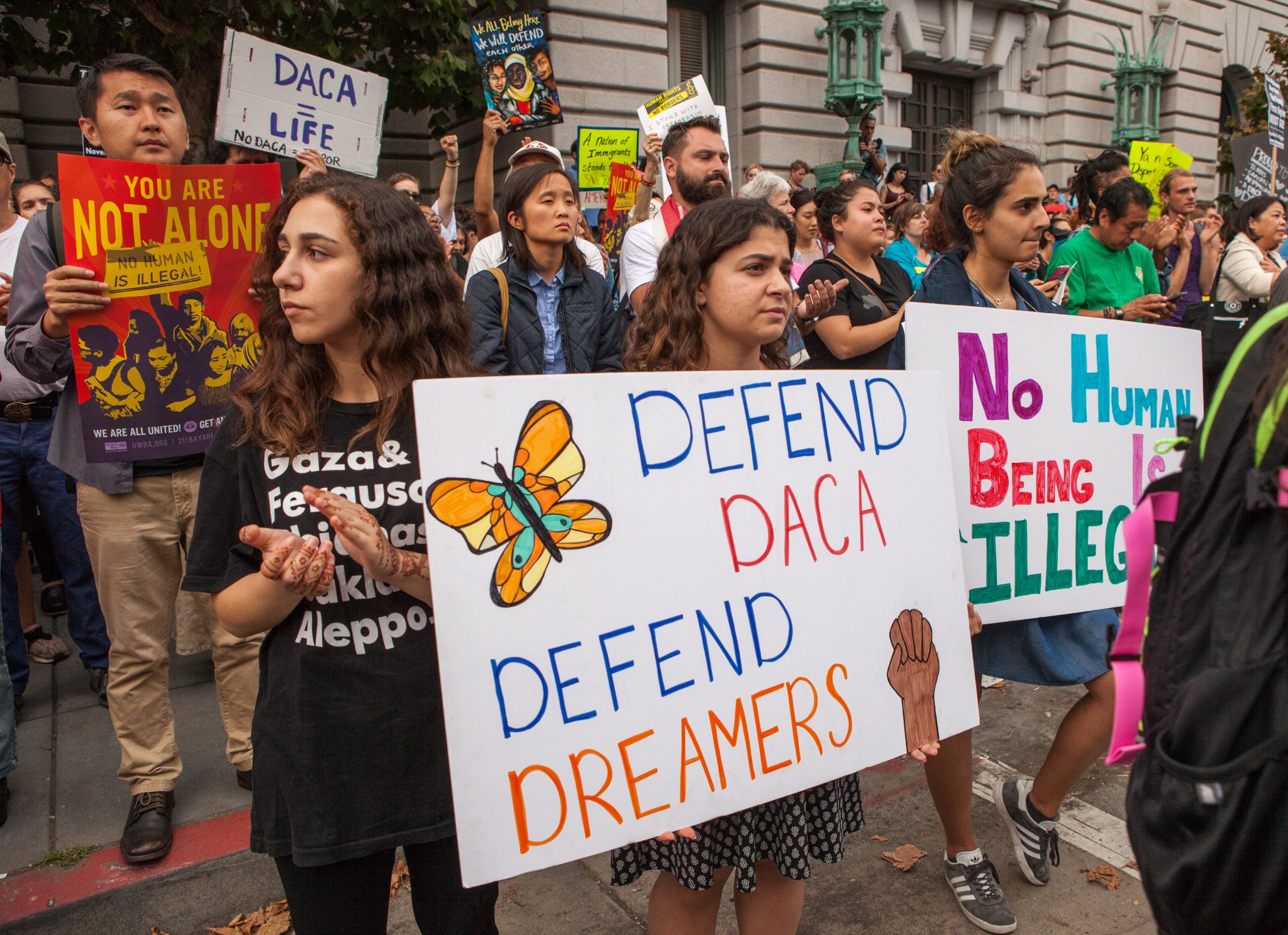Canada Should Not be Quick to Judge DACA’s Termination
In both Canada and the US, undocumented immigrants often arrive with their children in tow. Many Canadians were concerned about US President Donald Trump’s decision to end the Deferred Action for Childhood arrivals (DACA) program. Thousands of people arrived in the US during their childhood as undocumented immigrants, and DACA’s implementation allowed them to receive education and to work. However, DACA’s termination puts the “Dreamers” at risk of job loss and sudden deportation from a place they call home. The frustration felt by many Canadians and their sympathy towards the Dreamers’ situation is understandable.
But despite Canada’s open attitudes and policies about immigration law, there is currently no immigration program in place to specifically help the Dreamers.
Plight of “Dreamers”
There are any number of reasons why undocumented immigrants don’t apply for documentation. Their children, however, may not apply because they’re afraid of deportation. It’s something of a Catch-22: the fear of deportation because of their undocumented status pushes some to apply, but a failed application more often than not results in deportation.
As a result, many don’t take the chance, and instead continue to live without any legal immigration status. This poses many barriers, keeping them from access to higher education and social services. DACA offered protection for the children of undocumented immigrants in the US, giving these “Dreamers” a chance to pursue higher education and job opportunities. But no such equivalent program or protection exists in Canada.
Searching for Solutions
A recent CBC News article discussed the controversial end of DACA and Canada’s own approach towards undocumented immigrants and their children. The official line given by Immigration, Refugees and Citizenship Canada is that it expects illegal immigrants to “respect Canadian laws and regularize their status or return to their country of origin.”
There is some hope, however. Those who have grown up undocumented in Canada may apply for immigration status based on humanitarian grounds, arguing they’ve spent most of their lives in Canada and are settled, and thus deportation would be inhumane.
Undocumented immigrants in the US (such as the Dreamers) may apply to Canada through regular immigration streams. Many may not qualify due to a lack of higher education and/or qualifying work experience. As a result, there may be an influx of Dreamers filing refugee claims in Canada. However, there is no guarantee a refugee claim will be successful; many of them are Mexican nationals, and only a small percentage of claims made by Mexicans end up being accepted.
DACA allowed many children to build lives in the U.S. without fear of detainment and deportation. They could access education, get their driver’s license, and live normal lives in the place they call home. This freedom for a better life shouldn’t be taken away, or even prevented in the first place. These children shouldn’t be punished because their parents hoped to start a better life for their family. Therefore, some Canadians have called for Canada to step up in response to the end of the DACA program and create a program to allow Dreamers entry into Canada.
For more information about the immigration application process, contact a Canadian immigration law firm.
Share this article
Arghavan Gerami
Arghavan Gerami is the Founder and Senior Counsel at Gerami Law Professional Corporation ('PC'), a full-service immigration law firm in Ottawa, Ontario. Since 2011, Ms. Gerami has focused her practice on immigration and refugee litigation. Prior to that, Ms. Gerami worked at the Ministry of Attorney General and the Department of Justice and had the privilege of serving the Honourable Mr. Justice M. Evans at the Federal Court of Appeal on immigration and administrative law appeals. Ms. Gerami contributes to the Immigration Law Section of the Canadian Bar Association, the Canadian Association of Refugee Lawyers, and the United Nations High Commissioner for Refugees. Ms. Gerami has also published numerous journal articles and presented at various immigration and refugee law conferences and events across Canada.

